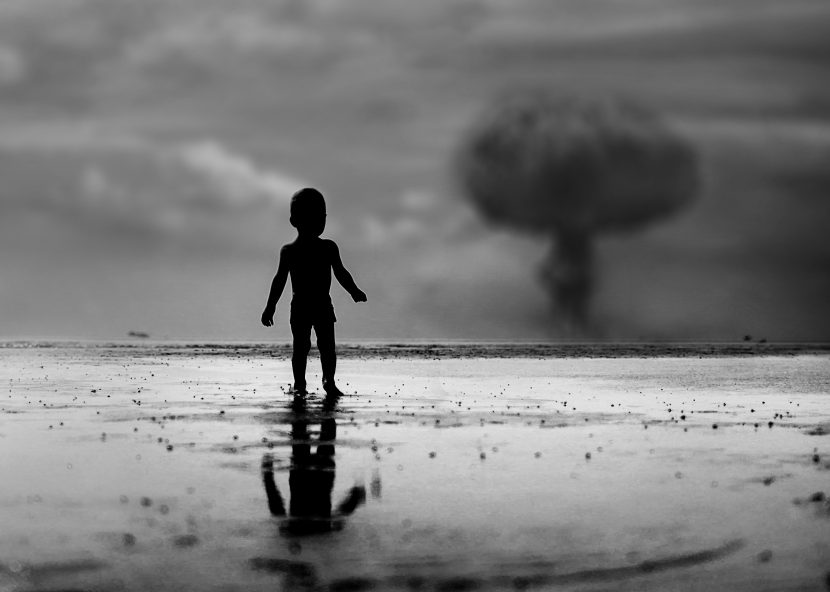Humanium has signed a Joint-Statement to the United Nations Human Rights Council (HRC) on the Situation of Children in Armed Conflict. During this month of September, the International Day to Protect Education from Attack (9 September) and the International Day of Peace (21 September) urged the International Community to reflect upon the right to education, the right to life and the needs of equal rights, justice and peace all around the world.
Humanium is proud to have jointly drafted and signed this Joint-Statement alongside Save the Children, Human Rights Watch, Child Rights Connect, Child Rights International Network, Defence for Children International, Watchlist on Children and Armed Conflict and World Vision International.
Signatories called on UN Member States to take concrete actions to develop gender-responsive action plans, to ensure that the delisting criteria from the annual report of the Secretary-General on children and armed conflict are the result of a deep and accurate analysis, and to strengthen the dialogue with states for the protection of children from attacks on education.
Humanium’s priority and commitment to ensure children equal rights and fair standards of life is pursued at different levels and this Joint-Statement is an important step forward.
The complete Joint-Statement is published below and is only available in its original English text.
United Nations Human Rights Council 44th Session
United Nations Human Rights Council 44th Session
Interactive Dialogue with the Special Representative of the Secretary-General for Children and Armed Conflict 2 – 3 July 2020
Joint statement by Child Rights Connect, Child Rights International Network, Defence for Children International, Humanium, Human Rights Watch, Save the Children, Watchlist on Children and Armed Conflict and World Vision International
Madam President,
This is joint statement. As an estimated 149 million children continue living in high-intensity conflict zones today, we wish to draw the attention of the Human Rights Council to three critical issues:
First, more consideration is needed on how conflict can deepen existing gender dynamics and inequalities. New analysis[1] outlines the differences between boys’ and girls’ experiences of conflict: girls are at higher risk of sexual and other forms of gender-based violence; boys are more likely to be exposed to killing and maiming, abductions, and recruitment. We call on UN Member States to support and resource adequately the Monitoring and Reporting Mechanism (MRM) to ensure that data collection is sex-disaggregated, and to support the Office of the Special Representative of the Secretary General (SRSG) on Children and Armed Conflict to develop gender-responsive action plans with full consideration to age, gender and diversity.
Second, we are deeply disappointed and troubled by the recent delisting of the Saudi-led coalition for killing and maiming children in Yemen, and the Tatmadaw for recruiting and using children in Myanmar from the annual report of the Secretary-General on children and armed conflict, including the stated rationale for de-listing that is contrary to the mandate given by the Security Council. Civil society groups have repeatedly raised concerns on the significant disparities between the evidence presented in the report and the parties listed in its annexes. We call to reconsider the delisting; and call for an independent assessment on how the Secretary-General has implemented the 2020 listing and delisting criteria to date and urge the UN to initiate a rigorous and transparent due diligence procedure to ensure the annexes accurately reflect the evidence collected and verified by the UN’s Monitoring and Reporting Mechanism. Less than 24 hours after the delisting of Saudi Arabia 4 children and 9 adults were killed in an airstrike, which hit their car as they returned from the market.
Finally, new research underscores the pressing need for protection, accountability for perpetrators, and remedies for victims of attacks on education facilities and personnel. The Global Coalition to Protect Education from Attack has documented repeated attacks on education in 37 countries, and military use of schools and universities in 34 countries, over the last five years. We encourage the SRSG (a) to strengthen dialogue with states on endorsement and implementation of the Safe Schools Declaration; (b) to encourage states to take concrete actions to better protect women and girls from attacks on education; and (c) to ensure that the report includes disaggregated data related to attacks on education.
Thank you.
Introduction written by Federica Versea


